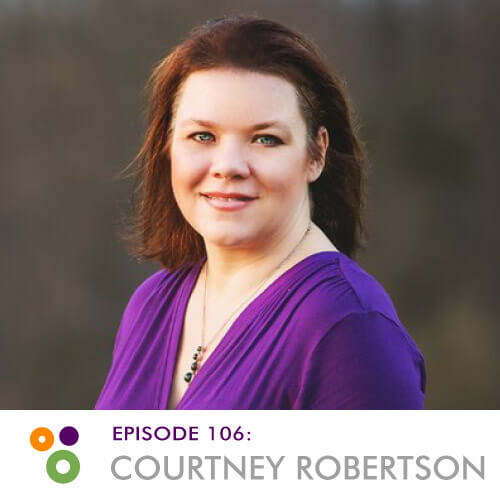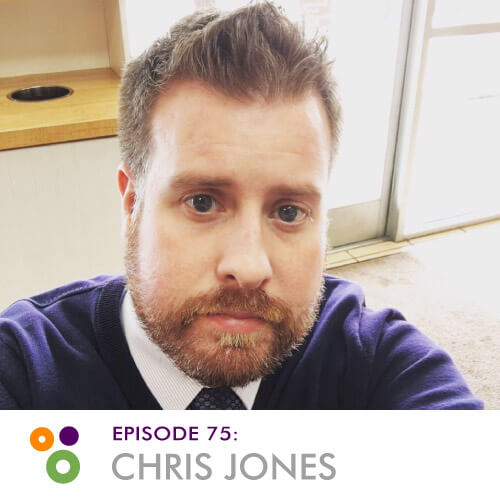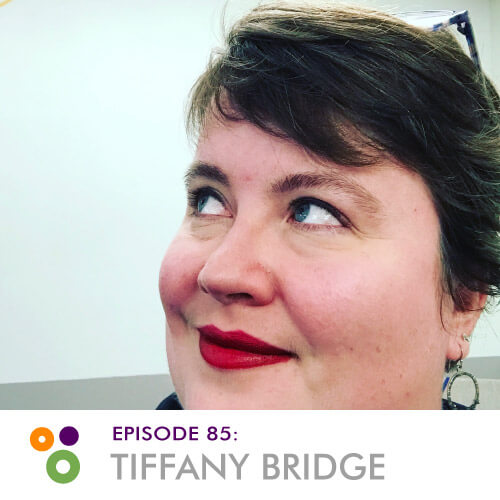Episode 130: Tara Claeys & Liam Dempsey

Podcast: Play in new window | Download
Subscribe: RSS
Year 2 In Review
Show Notes
Liam and Tara review the past year of the Hallway Chats podcast, discuss their views about success, share advice and announce plans for year 4.
Tara on Twitter | @taraclaeys
Tara’s pronouns | She/Her
Liam on Twitter | @liamdempsey
Liam’s pronouns | He/Him
Episode Transcript
Tara: This is Hallway Chats, where we meet people who use WordPress.
Liam: We ask questions, and our guests share their stories, ideas, and perspectives.
Tara: And now the conversation begins. This is episode 130.
Tara: Welcome to Hallway Chat. I’m Tara Claeys.
Liam: And I’m Liam Dempsey. Today, we’re joined by Tara and me. It’s our anniversary of podcasting on this show.
Tara: Yay. Yay. Yay
Liam: Yay. As we’ve done in years past, Tara and I are going to effectively interview ourselves, and we’ll review the past year. We’ll ask ourselves our signature questions of what’s our definition of success and what’s the best advice that we’ve ever received and implemented. We really like this opportunity because we get to go back and either listen to previous years answers or read those transcripts, or depending on how the past two weeks have gone in the run up to this recording, do absolutely neither of those and just see how we feel this year. And then subsequently after we record this, we check to see if it’s similar to last year.
Tara: That would be me. I don’t know about you, but I’ve not looked back at last year.
Liam: I did listen to last year’s show early this morning. I got up and I put it…
Tara: Oh, okay.
Liam: I can share with you that you did not listen last year, to the year before that either.
Tara: I think that’s a good honest way to approach it. Maybe.
Liam: No, I like that. I like that. I read the transcript last year of the previous year. But this year, I did not read the transcript, but I did listen to the show. We’ve known for a couple of weeks that we were going to record this today. We’ve planned this out a little bit. So I’ve spent a fair amount of time thinking about success and advice as it relates to this show.
Tara: I think about that all the time. Anyway. I’m a pretty introspective person so it’s on my mind a lot. My answers will probably be the same or very similar. So sorry to bore people, but we’ll see. Maybe not.
Liam: Well, no, it’s a good thing that you’ve got a podcast about this topic.
Tara: That’s true.
Liam: And you’re interested in it.
Tara: Yeah. Well, given our current quarantine situation, that might impact our answers a little bit, what we talked about, right?
Liam: I think so. I think so. Do we want to dive into those or should we start maybe with sharing a little bit about what our plans are for the show for the future, for the coming days?
Tara: Yeah, we can do that. We just had a little chat offline before we started this. So we can maybe summarize that a little bit.
Liam: The reason I share that is because you didn’t listen to previous year’s episodes. But we talked about it in the previous two years episodes.
Tara: I do recall that actually.
Liam: I’m sure you do. I’m not trying to put you on the spot or be mean to you. What did we talk about? What did we agree, Tara?
Tara: We agreed we’re going to keep going.
Liam: Yay.
Tara: I think we both discussed the fact that this podcast is something that’s out of the realm of our ordinary day to day tasks and that we value that. That as much as we might begrudge sometimes, the extra effort that’s involved, it’s not enough of an effort that takes away from the value of meeting new people and having conversations that open our eyes sometimes to things we didn’t know about and introduce us to people all over the world. And that has a great value. So it’s worth the effort. That’s what we’ve agreed on.
Liam: Yeah, I think that’s a pretty succinct review of it. That the things we learn, the people we meet, the experiences that we have, the positive experiences far outweigh the tedium of producing a regularly scheduled podcast. So yay, one more year. Yay.
Tara: Yay, one more year. So here we go. Kicking it off.
Liam: Alrighty. Do you want to go first?
Tara: Do you want to look back at the past year a little bit and talk about anything that we learned or that struck us, particularly?
Liam: Yeah, absolutely. I think every guest that comes on our show share something that touches me positively and I find a connection to. I don’t feel like any of our shows have ever been a waste of half an hour. That said, certainly, some aspects have stood out more than others in my engagement with the guests and with the episodes. And that’s probably more about me than about the guests or anything else.
We were both chatting before the show started about recently we talked to Nigel Rodgers who lives outside Harare in Zimbabwe. And he was sharing with us about the challenges of getting power in his home on a consistent basis and how that’s changed in light of the Coronavirus and what the previous regimen was for him. I certainly invite folks to go and listen to that episode with Nigel, a really great guy, and it was a great conversation. But that really stood out for the both of us as a challenge that you and I on the East Coast of the United States just don’t have to deal with, and that we’re very lucky to be where we are when we are. For no merit or fault of our own, here we are. That was a powerful point.
Tara: Yeah. That’s something I hadn’t considered before. I do really appreciate speaking to people in other parts of the world. And we’ve had the great privilege to be able to speak to people in India and Europe and Africa. So, I think I look forward to meeting more people from other countries in the new year. And we’re both hoping that we can gain more of that.
Liam: Yeah, absolutely. I think it’s so easy to slip into a microcosm of around us. But that’s not healthy or really enjoyable in the long run. It’s great to get folks from different places and different cultures and so many different things about them compared to you and I that really makes a big part of the enjoyment that I get from the show possible.
Tara: Yeah. I look back also in this year, and we’ve had some very good conversations with some African American guests on our show about the diversity or lack thereof in WordPress and technology, about opening our eyes and our language to diversity subjects, to gender equality, to racial equality and those types of issues, which is a conversation that I enjoy having more and more and learning more about and trying to be a better citizen, a better part of the world in being aware of all of the different people around me. So I also look forward to having more of those types of conversations because they educate me and hopefully educate our listeners, too.
Liam: I’m with you on that. I think the perspective of others whose experience cultural experience is different from ours is always great to hear. We can only walk our own lives. We can only wear our own shoes. But to have the opportunity to speak with people who have different shoes and have walked a different life and to, in some way, see the world through their eyes is very, very powerful and meaningful. And it’s a great way for us to learn and understand that which we might have not understood at a previous point in time.
Tara: Exactly. I’ve learned a lot through this show, I think, in the past year in addition to meeting people.
Liam: That’s about it.
Tara: We appreciate people coming on and being willing to talk about those types of things, too. I think that’s important.
Liam: Yeah, it doesn’t come without a cost or risk, right? We see that every day in the media and social media and in the news, that speaking up for the rights of those who others dislike or disapprove of or despise, can be very, very dangerous. And any number of voices. So yeah, very, very grateful to our guests for their bravery and their candor and their sharing, with not only you and I, but clearly with the wider community who listens to our show.
Tara: All right. What’s next?
Liam: In our previous episodes, we have talked about success and then advice. So maybe we change it up and talk about advice and then do success last. How does that sound to you?
Tara: I think that sounds pretty good. Sure.
Liam: All right. So, what is some advice that you’ve picked up along the way that really has worked for you that you’ve implemented and really worked well for you?
Tara: Now, if I had really planned better and thought about this, I would have looked back at the transcripts of other episodes because I think we’ve had guests that have shared some really great advice with us.
Liam: Absolutely.
Tara: In a nutshell, I would say, we’ve heard from a few different guests the concept of not being afraid of failure and not letting perfect be the enemy of the good. Those are my words, but I think we recently spoke with someone that shared some advice along those lines. So, I think that message guides me a lot in decisions that I make. Maybe sometimes mistakes that I make by acting too quickly on things. But I think that not being afraid to fail is a personality trait. But it’s also some advice that can be shared that is sometimes hard to implement, but that can really help you approach circumstances, challenges with a little bit less fear.
Liam: Yeah, we have heard that. And I think that’s a very important piece of advice. And it’s a challenge to adhere to and to embrace. But it certainly has its merits and its value. I totally agree with that. Good share, Tara. Good share.
Tara: Thanks. Off the top. I didn’t plan it at all.
Liam: You’re amazing that way. That’s why I like podcasting with you. So I guess that’s over to me than now. All right.
Tara: Yes. Have you scoured all of the past episodes?
Liam: No, no, no. I certainly kind of glanced at some of them. But I’ve been spending a fair amount of time in my own head in advance of the show thinking about this. Clearly, everything we’re doing and thinking about is influenced by COVID-19 in some way in these days. And we’re all trying to figure out a way how to make life happy and as smooth and easy as possible. You know, very, very difficult, very challenging, very fluid period of time. And I don’t mean that in we’re being mean about it, but that’s just what we’re trying to do.
And increasingly, what I’m finding —and is a practice that I don’t know where I heard it. It comes in a lot of different forms. I don’t know where I first encountered it. But it’s certainly in books and in Instagram shares and famous philosophers and the like—but the simple message is we can’t control what happens. All we can control is how we respond.
That kind of ties in don’t be afraid to fail. But it also allows us to not accept responsibility for all the chaos in the world, and also not worry about all the chaos in the world. I don’t mean not like be empathetic and sympathetic to those who are suffering terribly. I don’t mean that at all. But if we can be empathetic and we can donate more, in days when we could leave our house, we could go and help in some kind of volunteer contributory way. But we don’t have to let it emotionally overwhelm us or really just kind of become like this massive weight of all the terrible things that are happening right now on so many different levels. That doesn’t have to affect our sense of inner peace and inner joy. We can always control how we respond. So we can be unhappy, but still deeply joyful and peaceful.
Tara: Yes.
Liam: We can only control how we respond.
Tara: And we can control that. So I just signed up for this online course. It’s through Coursera, but it’s the top enrolled a course at Yale. It’s by Laurie Santos, and it’s the science of well-being. It’s about happiness—really about what happiness is about. And that’s kind of the crux of the message is that you can control how you respond to things and it’s up to you to determine your response, and whether or not you take it positively. The power of positivity. That’s part of the course as well. I recommend it actually. I’m in week two.
Liam: Week two out of how many?
Tara: Six I think.
Liam: Okay.
Tara: It’s free if you don’t take it for the certificate, which I’m not doing.
Liam: Say it one more time. What’s the name of it again?
Tara: I believe it’s The Science of Well-Being on coursera.com.
Liam: Thank you.
Tara: It’s just lectures. Watch a lot of videos with the professor.
Liam: Go to watch a video.
Tara: Yes. It’s not too hard. Invest in ti.
Liam: I like that. I’m going to check that out for sure. I think is easy it is to say we can control how we respond. It’s really helpful for me anyway to better understand the science, to understand the emotion, to understand the physiology, and all the different ways that we can think about how we respond. Because we all are wired slightly differently. Sometimes we’re wired really, really differently. And having an understanding of how all that works and affects our thoughts and emotions is very, very helpful.
Tara: Yeah. I don’t think you’d find anything in the course at least to where I am now that is a revelation of something that you haven’t heard before. Gratitude. If you are a grateful person, you’re going to be happier. Those types of things that we kind of know. But when you’re reminded of it, and when it’s pointed out the science behind it and all the studies that have been done, it just kind of drills it into a little bit more as to what’s significant.
Liam: Yeah, I agree with that. And to have somebody who’s professional focus is on the Science of Happiness, say, “No, no, here’s how it is.” And that’s really helpful. We take the two plus two equals four. But at some point, somebody actually went to the trouble of proving that mathematical or scientific way. And now we just don’t care about it. I mean, not that we don’t care about it; we just rely on it so. But talking about emotions publicly, in supportive ways, is a relatively new phenomenon in modern society. So it’s helpful to have scientific input and insight. Thank you.
Tara: Thank you. All right. Now you’re going to go first on the success question. You want to talk about success? Is your answer is changing from last year’s, since you looked at what you said last year?
Liam: Yes and no. No in the sense that it continues to be a valuable focus for me to as much as I humanly can, as often as I can, as constantly as I can, focus on my relationship with God. That I find that when I focus on that, even though I’m right in the middle of talking to you and engaging with you, and I’m really paying attention to you and listening to you and eager to hear what you say, and eager for you to listen to hear what I say, if I can do that in a way that is mindful of my place and existence and my place in God’s will for me, then that empowers me to live as lovingly and truly as I possibly can. And if I’m doing that, then I’m always making the right choice.
I don’t always live as lovingly and positive and as in keeping with God’s will as I would like, but for me to focus on that and to have that mindfully in my sense of awareness, ties into things like don’t be afraid to fail. If I’m really, really loving, you haven’t had a conversation, I’m really loving you, I love you as a person, what I say to you might not resolve the argument, might not fix the problem that you and I are struggling through. It may not get us to where we need to be.
But if I’m thinking about how much I value you as a human in our relationship, then the way I see things and what I say and all the things that make human interaction what they are, it won’t be wrong. It might not be the most effective but it will be right in some way shape or form. And you may not understand because we’re looking at each other and we’re talking, you might not embrace what I share with you, you’re going to respond how you respond. I can’t control that.
But if I really am focused in my perspective on God and on love, then whatever I put out there, will be put out there with love. And is it perfect love? No, of course not. But it’s as close as I humanly can in that moment. I think I’ve refined my definition to try to give it a little bit more practical implication. And that helps me kind of walk through my day in ways that I find more rewarding and more beneficial and more satisfying at a deep, deep level.
Tara: Has the quarantine, the shutdown, Coronavirus impacted that answer at all?
Liam: You know, in some ways, it’s sharpened to the value of it for me. Over a few years now, I’ve really been focused in trusting the higher power, that all will be right if I trust God, if I trust the higher power. And I don’t mean all will be right in the sense that I’m healthy, my children are healthy, my wife is healthy. I don’t mean that all will be right in that there will always be money in the bank. I don’t mean that. I don’t even mean that aside from all will be right in my ability to love God and try to do what God wants me to do.
And just trusting that and working to actively trust that has really, really enabled me, empowered me to not—I’m going to put it in air quotes. You can’t see this because it’s a podcast—but not worry about Coronavirus things. I don’t mean that I don’t ever stress about it or that I don’t think it’s a terrible thing or that I don’t feel the stress, and anxiety, and frustration, and sadness, and fear. That’s enveloping our world, especially those who are very, very directly affected by it. I don’t mean to say that.
But I can be very unhappy and very concerned about the world around me and still on the inside be deeply peaceful and joyful. Because joy and happiness are very different in my mind. They’re related, but they’re very, very different. And so I can look around and see everything in the world and in my own life—my life’s not perfect. Not by a longshot—that it’s all the more important from my perspective to focus more on God. And to really go back to that advice that I really embrace is all we can control is how we respond.
Tara: Yeah, those two ties together. I like how you brought that back around because they’re very related.
Liam: Thank you. Thank you. But enough of my pontification. Tell me your definition of success and how it may or may not have changed in the past 12 months.
Tara: It’s probably very similar. I think one thing that this COVID time has highlighted in a somewhat disappointing way is that we are still ourselves. When this started, I think I had this hopeful moment of, I am going to become the person that I wanted to be. I’m going to stop working at five, I’m going to play the guitar, I’m going to do all of these things, I’m going to do puzzles, I’m going to appreciate and savor every moment. And that’s who I really want to be and this is the opportunity to do it. And it’s been disappointing to learn that I have not done those things and that it’s been what 10 weeks now, and I am still the same person who can’t stop working at the end of the day, who always finds things to do that are at my computer.
And conversely, though, I think it has allowed me to, not necessarily develop new habits, but continue to be contemplative about the idea of success as it relates to me constantly working on myself and being better. And so, being disappointed in myself for not stopping working or not paying enough attention to my husband, not savoring the moments, those are all things. And certainly, as my faith relates to that, that is that I’m human and I can strive to always be better. But I am human and I have loved anyway. And so I need to love myself anyway.
So bringing all of that into the fold of being successful for me is always being aware of how I can be better while also accepting who I am and loving who I am and being kind to myself as much as I can. So I think that’s an evolution that I’ve come to over the past year because that acceptance and that self-love has not been something that I’ve embraced or been super aware of. It’s very hard. I don’t succeed at that all the time.
When you talk about worries, I have come to a point where I do realize what I can control and what I can’t. And so I really don’t spend a lot of time with intense worry about things I can’t control. But what I do worry about are mistakes that I’ve made, that I deeply regret, where I haven’t been that person that I strive to be, where I’ve been less kind, or just done things that have not been things I’m proud of. So, I do worry about those things because they impact my view of myself. But I do also try to bring in that self-love and forgiveness. So, I can give that to myself, I think instead of my lifelong habit of looking outward for love.
And so success for it’s being able to find that ability to accept who I am and forgive myself, and focus more on that versus looking for everybody else to accept me and forgive me. That was a little bit deep. I could start crying a little bit right now. I hadn’t thought about putting that into words, and I hope that what I just described doesn’t sound pathetic.
Liam: Not at all. Not from my perspective. I think it’s really powerful what you shared that. Coming to a deep and committed understanding that you as who you are just by your very existence has a deep and measurable value. Regardless of what mistakes you’ve made or will make or are making right now, we still have deep, deep value in our not only lovable but loved. That’s not a realization that everybody can embrace for any number of reasons, and that you have. And I support your embrace of it.
I agree with your perspective. It’s hugely important, hugely empowering and sets up a lot of things like being able to forgive ourselves for past mistakes and repeated past mistakes. You talk about, “I didn’t close computer at five again today. I’m working on it. It’s okay. I’m not a bad person because I didn’t. I’m still good. I still have value.” So that’s great. And no, I love that you shared that. And I could definitely see that you were connecting with what you were saying in a very real way. And that you’re so willing to share that and be open about that speaks volumes of how committed you are to that belief. Thank you.
Tara: Thank you. I listened to a podcast yesterday about enneagram. Have you done any enneagram stuff? Do you know anything about that? It’s like a personality rating. Kind of like a Myers Briggs but it’s a number scale. I have a few friends who are really into it—people I follow on social media who are really, really into it. And I’ve taken like the free, cheap tests online to get my number or combination of numbers. And so I listened to this Brené Brown podcasts that I saw was shared online. So I listened to that yesterday.
I was listening to all the different personality types and the descriptions of sort of the strengths and challenges of each personality type. One of those really talked a lot about what I just described, which is that sort of looking outward for love, never feeling that you are worthy of it if you don’t get it from outside. So I’ve been thinking a lot about that. That’s probably where some of that came from. Anyway, if anybody’s interested in that podcast, it’s on Brené Brown’s podcast, which I’ve never listened to before, but it’s one about enneagram. It’s a little bit interesting.
Liam: That’s a good sharing today, Tara Claeys. Lots of good sharing.
Tara: We’re out of time, Liam.
Liam: We are. We are. It’s been another year, Tara. Thank you.
Tara: Thank you so much. I really appreciate you and I’m grateful for this opportunity
Liam: Me too. Me too. And thanks to all of our wonderful listeners and transcript readers for being there and for being there for our guests. Not so much for being there for Tara and for me, although we would certainly appreciate it. But we were just looking at our statistics before we hit the record button today, and it was delightful to see that we’re getting about 110, 115 listens per episode. And as we’ve shared a number of occasions, to think that any of our guests would be able to book a slot at a WordCamp where they’d show up in their talk would be 30 minutes about them in their lives, and it would have 110 people in the room just wanting to hear about them is fantastic. It’s just wonderful. We’re so grateful to the community around the show that support our guests’ so wholeheartedly.
Tara: And thank you to Liquid Web for continuing to host our website. We really appreciate that. Also, I’ll give a shout out to Evalyn who transcribes our podcast for us every week from Nairobi.
Liam: Yeah, Liquid Web, Evalyn, they’re both fantastic. The support team around us that makes this possible is great. They’re unsung, they’re very little seen, and it’s great that we’re having a moment to slow down and publicly thank them. Already. Well, with that, we’ll see you in the next episode.
Tara: Yes, we will. Have a great day, Liam.
Liam: You too. Bye-bye.
Tara: Bye.
Liam: Thanks for listening to the show. We sure hope you enjoyed it as much as we did.
Tara: If you like what we’re doing here – meeting new people in our WordPress community – we invite you to tell others about it. We’re on iTunes and at hallwaychats-staging.ulpgsyz6-liquidwebsites.com.
Liam: Better yet, ask your WordPress friends and colleagues to join us on the show. Encourage them to complete the “Be on the show” form on our site, to tell us about themselves.





